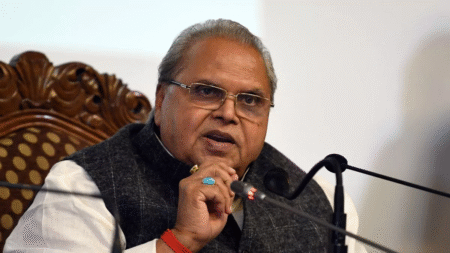China’s recent missile test, the first in over four decades, has sparked intense international discussion about its implications for global geopolitics. The test, which involved a long-range Intercontinental Ballistic Missile (ICBM), is widely perceived as a message aimed at the West, particularly the United States and Taiwan.

This development underscores China’s growing military capabilities and raises questions about the future of international relations, especially in the Pacific region.
The Significance of the Test
This missile test is particularly noteworthy because it’s the first of its kind from China in 40 years, signaling a shift in its defense strategy. Many experts believe this is not just a demonstration of military prowess but a direct response to the increasing military presence of the West, particularly the United States, in the Asia-Pacific region.
China’s state-run media outlets have emphasized that the missile tested is capable of reaching targets across continents, including the U.S. mainland. The timing of the test is also critical, given the rising tensions between China, Taiwan, and the United States. Beijing has long viewed Taiwan as part of its territory and has been increasingly vocal about opposing any form of foreign intervention in the island nation.
A Warning to the West?
Military analysts believe that this missile test is a warning to the U.S. and its allies regarding their involvement in Taiwan. The Chinese government has consistently stated that any attempt to aid Taiwan in formalizing its independence could result in severe consequences. This missile test may be a way for Beijing to reinforce its stance that it will not tolerate foreign interference in its domestic affairs.
Also Read : Russia Ukraine Conflict : Trump Criticizes U.S. Support For Ongoing Conflict
The missile test also aligns with China’s broader strategy of modernizing its military capabilities. Over the past decade, China has made significant investments in advanced technologies such as hypersonic weapons, cyber warfare, and space-based military systems. This latest missile test shows that China is not only focused on regional dominance but is also positioning itself as a global military power capable of challenging the West.
Global Reactions
The international community has expressed concern over the potential escalation of military tensions in the region. The United States, in particular, has reaffirmed its commitment to defending Taiwan in the event of an attack from mainland China. However, Washington has also indicated that it seeks to avoid direct conflict and prefers diplomatic solutions.
NATO and the European Union have also issued statements urging China to de-escalate tensions and engage in dialogue. Taiwan, on the other hand, has expressed alarm over the missile test, stating that it is prepared to defend itself but is hopeful for peaceful resolutions to the ongoing disputes.
Russia, a close ally of China, has remained largely silent on the issue, though it is expected to side with Beijing in any major geopolitical conflict involving the West. This highlights the growing divide between Western democracies and the authoritarian regimes of China and Russia, a dynamic that could define international relations in the coming years.
A Historical Context
China’s last missile test of this magnitude occurred more than 40 years ago during the Cold War era. At that time, China was a far less powerful player on the global stage, still recovering from internal strife and political turmoil. Today, however, China is an economic and military superpower, and its actions have a much more significant impact on global stability.
In many ways, the missile test is reminiscent of the Cold War arms race between the United States and the Soviet Union. The renewed focus on missile development and strategic deterrence signals that we may be entering a new era of geopolitical rivalry, this time between the U.S. and China.
What Lies Ahead?
With China’s missile test, the risk of miscalculations or unintended escalations has grown. The U.S. and its allies will need to carefully navigate these waters to avoid a full-scale military conflict. Diplomatic channels remain open, but the window for peaceful resolution appears to be narrowing.
- How to Stay Healthy During Flu Essential Tips for Every Family
- Satyapal Malik Death on 5 Aug 2025: Political Legacy That Shaped Indian Public Life
- Growing Legionnaires’ Disease Outbreak in NYC’s Harlem Claims Two Lives, Sickens Over 58
- Non-Alcoholic Drink Beer: fresh Alternative with a Unique Appeal
- Meet the Harley-Davidson X440: The Ultimate Desi Roadster
- OnePlus Pad 3: The Android Tablet That Wants Your Laptop’s Job
China’s military ambitions are clear, and its willingness to use provocative measures to send a message to the West cannot be ignored. As the international community grapples with how to respond, one thing is certain: the balance of power in the Asia-Pacific region is shifting, and the world must prepare for a new era of competition and conflict.
FAQs
1. What is the significance of China’s missile test?
- This missile test is significant as it is China’s first in over 40 years. It demonstrates China’s advanced military capabilities and is seen as a strategic message to the West, particularly the United States and Taiwan.
2. Why is this test being viewed as a message to the West?
- The test is believed to be a direct response to the increasing U.S. military presence in the Asia-Pacific region and its support for Taiwan. It serves as a warning that China will not tolerate foreign interference in its domestic affairs.
3. How is the U.S. responding to China’s missile test?
- The U.S. has reaffirmed its commitment to defending Taiwan but has also expressed a preference for resolving tensions through diplomatic means rather than military confrontation.
4. What are the broader global implications of this missile test?
- The missile test indicates a potential escalation of military tensions between China and the West, signaling a new era of geopolitical rivalry. It also underscores the growing divide between Western democracies and authoritarian regimes like China and Russia.
5. Is Taiwan prepared for a conflict with China?
- Taiwan has expressed concerns over China’s missile test but has stated that it is prepared to defend itself if necessary. However, Taiwan continues to hope for peaceful solutions to the ongoing tensions.
6. How does this missile test compare to China’s past military actions?
- China’s last missile test of this magnitude was over 40 years ago, during the Cold War. The current test highlights China’s advancements in missile technology and its growing military ambitions on the global stage.
Conclusion
China’s missile test sends a clear message: the nation is ready and willing to assert its military power on the global stage. As the U.S. and its allies consider their response, the stakes in the Asia-Pacific region have never been higher. The world is watching closely to see how this new chapter in international relations unfolds.













